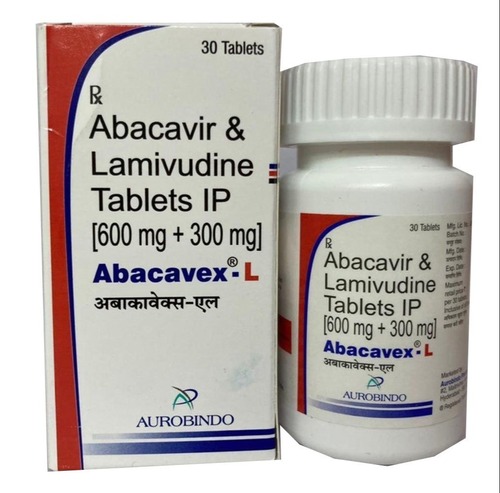Abacavir and Lamivudine tablets
Product Details:
Abacavir and Lamivudine tablets Price And Quantity
- 2400 INR/Bottle
- 5 Bottle
Abacavir and Lamivudine tablets Trade Information
- Cash Advance (CA) Cash in Advance (CID)
- 1000 Bottle Per Week
- 4 Days
- Asia Australia Central America North America South America Eastern Europe Western Europe Middle East Africa
- All India South India Central India West India North India East India Gujarat Karnataka Kerala Lakshadweep Mizoram Meghalaya Manipur Andhra Pradesh Bihar Chandigarh Daman and Diu Goa Jharkhand Odisha Punjab Assam Delhi Dadra and Nagar Haveli Andaman and Nicobar Islands Arunachal Pradesh Chhattisgarh Haryana Himachal Pradesh Jammu and Kashmir Madhya Pradesh Maharashtra Nagaland Rajasthan Sikkim Tamil Nadu Telangana Tripura Pondicherry Uttar Pradesh Uttarakhand West Bengal
Product Description
The combination of Abacavir and Lamivudine is a commonly prescribed antiretroviral medication used in the treatment of HIV (human immunodeficiency virus) infection. This combination is often provided in a fixed-dose tablet to simplify the treatment regimen for individuals living with HIV.
Here are some key points about Abacavir and Lamivudine tablets:
-
Abacavir:
- Abacavir is a nucleoside reverse transcriptase inhibitor (NRTI).
- It inhibits the reverse transcriptase enzyme, disrupting the replication of the HIV virus.
- Abacavir is often used in combination with other antiretroviral drugs as part of a comprehensive HIV treatment plan.
-
Lamivudine:
- Lamivudine is also a nucleoside reverse transcriptase inhibitor (NRTI).
- It inhibits the reverse transcriptase enzyme, preventing the replication of the HIV virus.
- Like Abacavir, Lamivudine is commonly used in combination therapy for HIV.
Key points about Abacavir and Lamivudine tablets:
-
Indications: This combination is used for the treatment of HIV-1 infection in adults and pediatric patients.
-
Dosage: The typical dosage involves taking one tablet orally once or twice daily, as prescribed by a healthcare professional. The specific dosage may vary based on the individual's health condition and overall HIV treatment plan.
-
Adherence: Adherence to the prescribed regimen is crucial for the effectiveness of HIV treatment. Missing doses or not taking the medication as directed can lead to reduced efficacy and the development of drug resistance.
-
Hypersensitivity: Before starting this medication, individuals are typically screened for the HLA-B*5701 allele, as individuals carrying this allele have an increased risk of a severe hypersensitivity reaction to abacavir.
-
Side Effects: Potential side effects may include nausea, headache, and fatigue. It's important to report any severe or persistent side effects to a healthcare provider.
-
Pregnancy: The use of this combination during pregnancy should be discussed with a healthcare provider, taking into consideration the potential risks and benefits.
Individuals prescribed with Abacavir and Lamivudine tablets should follow the guidance of their healthcare provider, undergo regular monitoring, and communicate any concerns or side effects experienced during the treatment. As always, individual circumstances may vary, and healthcare providers can provide personalized information based on the patient's medical history and needs

Price:
- 50
- 100
- 200
- 250
- 500
- 1000+







 Contact Us
Contact Us Call Me Free
Call Me Free
